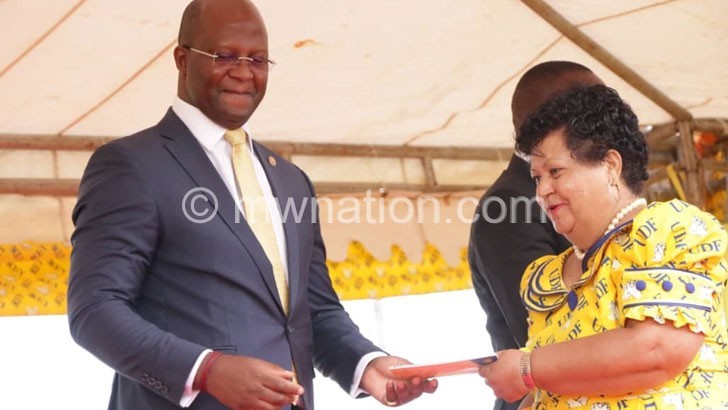Parties see need to improve education, agriculture
Going through manifestos of four major contenders in the May 21 2019 Tripartite Elections, they all acknowledge that education and agriculture remain key drivers of the country’s economic development.
The four—DPP, MCP, UDF and UTM—have placed the two sectors among their priority areas.

With agriculture employing about 85 percent of the workforce and contributing over 80 percent to total export earnings for the country and accounting for around 30 percent of the country’s gross domestic product (GDP), the sector remains a key driver of growth and human capital development in Malawi.
On agriculture, the most talked about initiative is the Farm Input Subsidy Programme (Fisp), which they all agree needs reform due to various challenges, including administrative costs, corruption and poor targeting.
In its manifesto, UTM states that it shall strive to push Fisp beyond a poverty reduction objective to a “full transformative agrarian programme” that will eventually reduce the need and provide an exit option. How that will be achieved remains the devil whose back is protruding in the paucity of detail.
The MCP, as it has always been preaching, says it will replace the programme with universal subsidy to ensure that fertiliser and other inputs are accessible to all farmers at affordable prices.
MCP says its diagnosis is that agriculture’s potential is yet to be fully exploited for it to contribute to fundamental structural transformation and sustainable development.
On its part, DPP, which launched the programme in 2005 under the reign of the late Bingu wa Mutharika, also acknowledges in its manifesto the need to reform the programme.
“We have learned a lot that we are now ready to make informed reforms to the support to be provided to our subsistence farmers,” reads the DPP 2019-2024 manifesto titled Sustaining A People-centred Government.
Somewhat, DPP has also adopted the MCP approach of introducing universal subsidy.
But besides reforming the programme into universal subsidy, DPP also wants the programme to be in two other units.
Thus, says DPP, within the universal component, the ruling party says it would reduce fertiliser price for any maize producer while the poor with land and ability to farm will get free inputs, but on graduation terms. Finally, poor farmers with no land or ability to farm will qualify for social cash transfer.
In its manifesto launched under the theme A New Beginning, the UDF says it will evolve Fisp into a social protection programme that will improve yields for the “poorest farmers” to better deliver food security.
In the education sector, all the four parties talk of expanding early childhood development, but have different views on abolishing the quota system of students’ selection to public secondary schools and universities.
While MCP and UTM indicate they will do away with the system and replace it with a merit-based approach, DPP says it will continue with the system in selecting students to public universities while UDF is silent on the issue.
On free primary education, DPP says it will make it compulsory and abolish development fee and other payments while the MCP manifesto states the party will enforce legislation to have it compulsory.
On the other hand, UTM also talks about reintroducing physical education and competitive sports in both primary and secondary schools while UDF seeks to keep all children in school until they attain 15 years of age with a focus on girls to mitigate challenges of early pregnancy and marriage.
While describing the manifestos as fancy, political science scholar Ernest Thindwa of the University of Malawi’s Chancellor College doubted the feasibility of the parties implementing some of their promises, which appear far-fetched.





